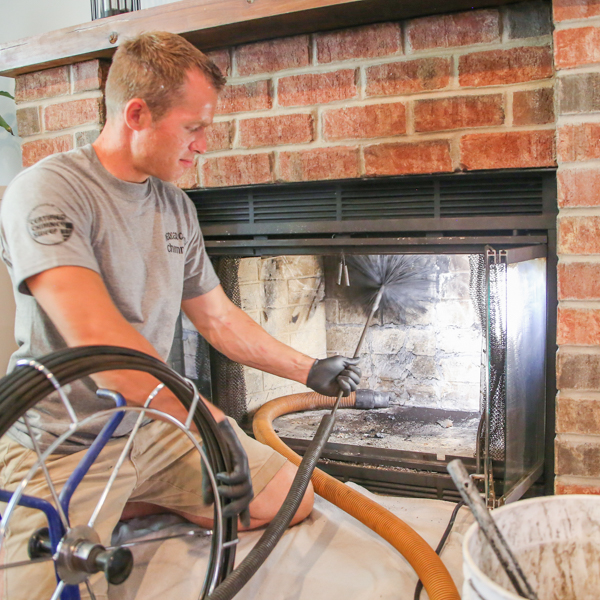Introduction
Chimneys are not just cozy additions to homes; they serve a crucial role in venting potentially harmful byproducts of combustion. Keeping them clean and well-maintained is vital for the safety of both the property and its occupants. This article delves into the often-debated question of who should shoulder the responsibility for chimney cleaning in rented properties in the UK and explores the factors that determine this crucial obligation.
The Dangers of Neglecting Chimney Sweeping
Regular chimney sweeping is essential to prevent the accumulation of soot, debris, and creosote, which can lead to a range of dangers and hazards:
- Accumulation of Soot, Debris, and Creosote:
- Soot build-up reduces chimney efficiency, potentially causing backdrafts and indoor air quality problems.
- Debris like leaves and twigs obstruct ventilation and increase the risk of fire hazards.
- Creosote, a highly flammable substance, can accumulate on chimney walls, especially in cooler areas.
- Fire Hazards:
- A chimney clogged with these substances becomes a potential fire hazard, as creosote can ignite, leading to a destructive chimney fire.
- Even contained chimney fires can damage the flue lining, posing further fire risks.
- Carbon Monoxide Poisoning:
- Poorly maintained chimneys can result in carbon monoxide (CO) entering living spaces, causing health problems ranging from headaches to loss of consciousness and even death.
Landlord’s Responsibility
According to Section 11 of The Landlord and Tenant Act 1985, landlords in the UK have specific repair obligations for rental properties, including heating systems and chimneys. Landlords must ensure their properties are safe, well-maintained, and fit for habitation. This includes maintaining the chimney in a safe and efficient condition.
Landlords should arrange regular chimney sweeping and maintenance to prevent fire hazards and carbon monoxide poisoning, ensuring the chimney is free from soot, debris, and creosote buildup.
Tenant’s Responsibility
While the general rule is that the landlord is responsible for chimney maintenance, there are scenarios where the tenant might assume this responsibility. This can happen when the tenancy agreement explicitly states the tenant’s obligation to maintain the chimney and heating system. Arguments in favor of tenant responsibility include:
- Misuse of the Chimney:
- If the tenant is responsible for excessive soot or creosote buildup due to misuse, they may be expected to clean it.
- Inconsistent Use:
- If the tenant rarely uses the chimney, they might argue they should handle maintenance.
- Lower Rent:
- In some cases, landlords may lower rent for properties with fireplaces, expecting tenants to manage chimney cleaning.
Counterarguments against tenant responsibility include safety concerns, legal obligations, and professional cleaning standards.
Factors to Consider
Determining chimney-sweeping responsibility depends on various factors:
- Type of Heating System:
- The type of heating system affects responsibility, with wood-burning stoves or traditional fireplaces often being the landlord’s responsibility.
- Rental Agreement Terms:
- The rental agreement’s terms and conditions play a crucial role in allocating duties.
- Local Building Codes:
- Local regulations may impose chimney maintenance obligations, favoring landlords.
- Frequency of Use:
- Tenant responsibility may increase if they use the chimney regularly.
- Safety Concerns:
- Professional chimney sweeps are equipped to handle cleaning safely, highlighting the importance of relying on professional services.
Chimney Sweeping Frequency
HETAS recommends chimney sweeping at least twice a year for wood or bituminous house coal users and once a year for smokeless fuel users. However, factors like high use, fuel type, heating system changes, and the presence of animals or nesting materials may necessitate more frequent cleaning.
Importance of Professional Chimney Sweeping
While DIY cleaning may be tempting, professional chimney sweeps ensure safety and compliance with building insurer requirements. Insurers often demand certificates from qualified professionals as proof of proper inspection and cleaning, reducing risks of chimney fires and carbon monoxide poisoning.
Conclusion
Chimney maintenance is crucial for the safety of your property and its occupants. Understanding the responsibility for chimney cleaning, adhering to expert recommendations, and ensuring compliance with local regulations are key to maintaining a safe and efficient chimney system. Don’t compromise on safety; trust professional chimney sweeps to keep your property in top-notch condition.
